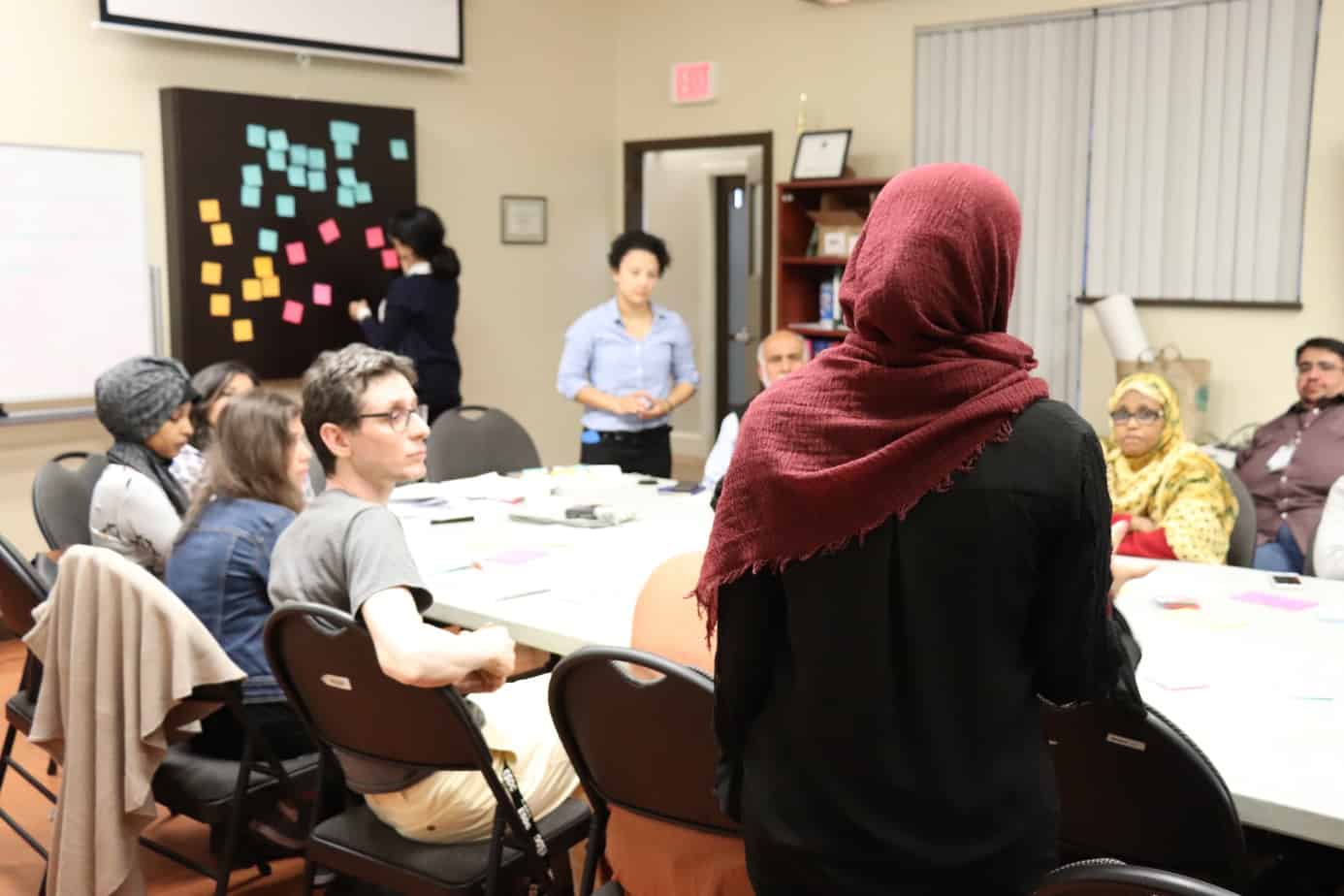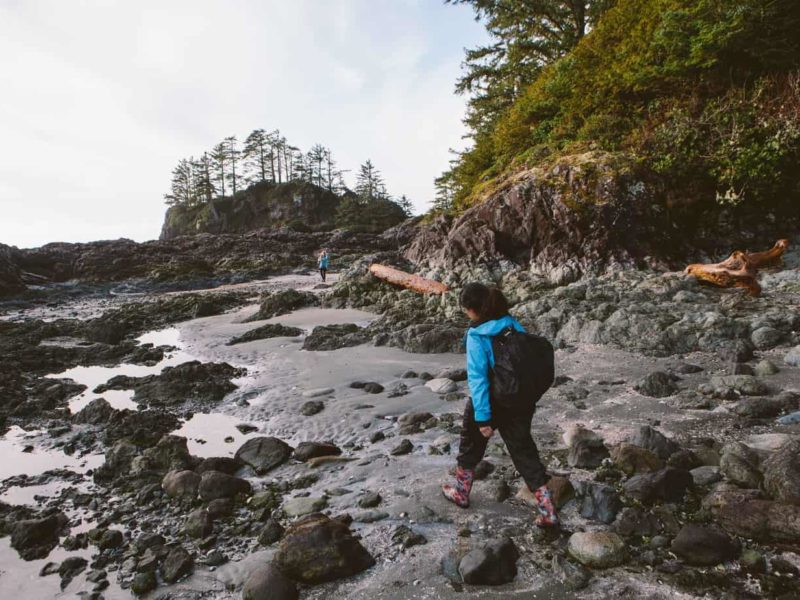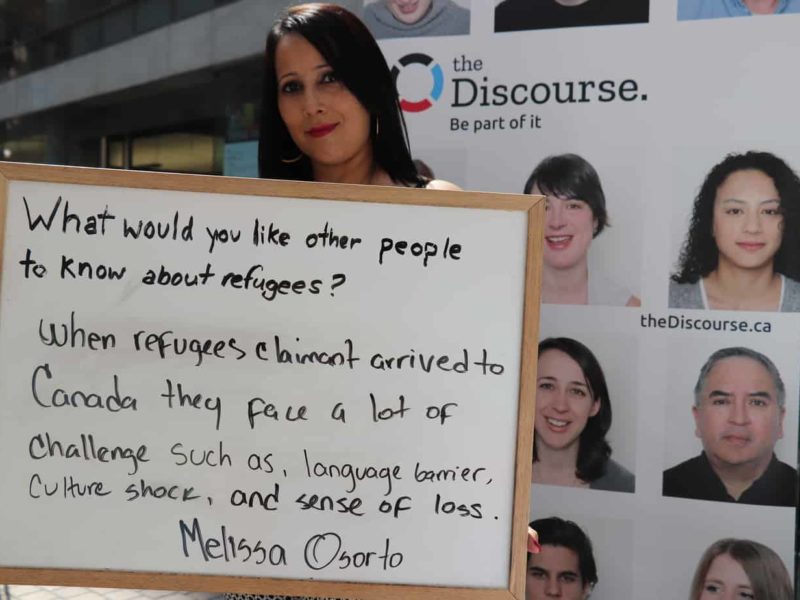
Happy belated Canada Day! One of the things I love most about Canada is its diversity and welcoming attitude towards immigrants. It’s something I love to celebrate, but it’s also something I’ve been thinking about more critically since I started investigating issues related to refugees with data reporter Francesca Fionda.
The media covers the refugee crisis daily, but that doesn’t mean refugees and asylum seekers feel heard. In a series of workshops hosted by The Discourse in June, two dozen refugees from around the world came together to tell us how they think journalists can do a better job.
Participants, including government-assisted refugees, privately sponsored refugees and asylum seekers from Afghanistan, Ethiopia, Guatemala, Indonesia, Iraq, Kyrgyzstan, Mexico, Myanmar, Peru, Syria and Yemen, told us they were concerned that people didn’t understand their experiences because there isn’t enough diverse coverage of refugees in the media. They’d found Canadians know a lot about Syrian refugees, but don’t know much about refugees and asylum seekers from other countries.

We heard the media could help improve the public discourse by covering stories of diverse refugees from different countries, including the reasons they fled their native countries and their varied resettlement challenges. For me, our conversations highlighted how important it is for me and other journalists to constantly question whose voices we are representing or disregarding — and what stories we might be missing in the process.
So, Francesca and I used what we learned from the workshops to put together a toolkit that we hope will help increase diversity in media coverage of refugees and improve media coverage of the refugee crisis. It includes tips and tools to help journalists provide responsible and ethical coverage of refugee issues (available here) and a toolkit for refugees and asylums seekers approached by the media for an interview (available here). If you want to know about what else we discussed, check out this piece on five things we learned from the workshops.
Now, we’d love to hear what you think. We’d also be grateful if you could help spread the word, let us know how to improve the toolkit and drop us a line if you know anyone who might be able to help us translate it into different languages so it can be accessed by more refugees. You can reach me by email, on Facebook or via Twitter.



